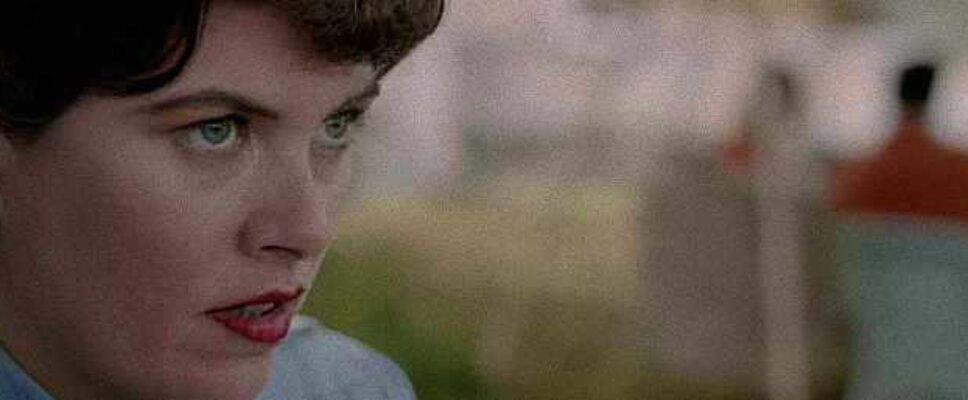Teresa Reviews “Curtain: Poirot’s Last Case” (2013)
Teresa reviews “Curtain: Poirot’s Last Case” (2013) and thought it was a fitting send-off for the little Belgian detective.
Fidelity to text: 4½ poison bottles
![]() Very close, including dialog.
Very close, including dialog.
Quality of movie on its own: 4½ poison bottles
![]() Outstanding, except for a scene in the book dropped from the movie. Adding that back would have gotten this episode five poison bottles.
Outstanding, except for a scene in the book dropped from the movie. Adding that back would have gotten this episode five poison bottles.
Read more of Teresa’s Agatha Christie movie reviews at Peschel Press.
Also, follow Teresa’s discussion of these movies on her podcast.

But every era ends! Get over it! This series had to end too, twenty-five years after The Adventure of the Clapham Cook in 1989 started it all, introducing us to Suchet’s masterful portrayal of Poirot and Hugh Fraser as his faithful friend, sounding board, and sometime assistant, Captain Arthur Hastings.
It could have been dreadful. Bathetic, awash in fake sentiment, trite, and worst of all, completely rewritten by some hack so Poirot lived to hunt murderers another day and the studio could continue raking in the bucks. But justice triumphed and Poirot went bravely into that good night, knowing he’d executed a man whom the law could never touch.

In the novel, Poirot states that he knows of at least five murders that Norton was involved in and believes there were more. Truthfully, just in the five murders Poirot knows about, there were ten victims. The murder victim (who in every case had it coming which is why Norton succeeded) and then the victim of Norton’s lying advice who was executed by the Crown. Or committed suicide. Or had their life ruined by suspicion and ugly rumor. Add in the circle of family and friends who’ll never be the same and you’ve got a lot of victims.
Poirot knew the risk he ran. He murdered Norton, thereby breaking his own moral code and risking his soul to eternal damnation. But what else could he do? He’s not Batman, condemning thousands to millions of innocent victims to death at the Joker’s hands because he’s too damn dainty to shoot a rabid dog. There was also the risk that if he didn’t pull it off, he’d be accused of murdering an innocent birdwatcher, something the Joker would do.
He chooses to save other, innocent lives, accepts death, and trusts his soul to God’s judgement.
There was so much to love in this episode. Styles was a shadow of its former glory; the walls bare of sold art and the rooms echoing because furniture was gone. That’s not the only reason Styles didn’t look like you remembered. The producers used a different location for the mansion than the one they used to film The Mysterious Affair at Styles. The season is autumn, the end of the year and cold, dreary winter is on her way. Color, life, and joy have drained away from Styles and its inhabitants.

Judith appears to be ready to have an affair with Major Allerton, a heartless cad. She has no desire to listen to her father suggest that perhaps a man who callously uses and abandons women is not the best prospect. It’s easy to see why Hastings doesn’t understand Judith. She’s nothing like him. She’s a eugenicist, stating publicly that useless and ailing people should be killed. Gently, because doing otherwise would be cruel, but she means it. I hope she never has a disabled child. According to her lights, they’re unfit to live. Hastings considers human life to be sacred. If anything, the film softened Judith. She’d leave bodies piled high in her wake if she ran the world the way she thought it should be run.

“Lots of people I’d like to kill. Don’t believe my conscience would keep me awake at night afterwards. It’s an idea of mine that about eighty percent of the human race ought to be eliminated. We’d get on much better without them.”
I have to wonder who he expects to grow his food, keep his electricity and water flowing, and scrub his shining city upon the hill. Like Judith, the film softens his character.
It’s no surprise when Babs, his wife, is poisoned. The question is who did it. Poirot says suicide and the coroner and the inquest agree. Later, Dr. Franklin admits that Babs wasn’t the suicidal type but he doesn’t want to know the truth. Maybe because he suspects Judith murdered his unpleasant wife. With Babs gone, they’re free to marry and head off to Africa. But they’d always have a cloud over their relationship, each wondering what the other did. Norton would triumph again.
The one flaw was removing the reconciliation between Toby and Daisy Luttrell. They’re the elderly couple running Styles as a guesthouse. They’re on the verge of penury, struggling to do something they were never trained for, and snapping at each other. He thinks she’s a bossy harridan and she thinks he’s an incompetent spendthrift. They’re both right. Norton plays Toby Luttrell like a harp, saying exactly the wrong thing in his hearing about spineless men being bullied and how real men would never let their wives use them as doormats.

Which is why Norton manipulates Hastings to murder.
Poirot ends his life and the series in triumph. He saves Hastings from his folly, removes an untouchable rabid dog, and ensures the innocent no longer suffer.


